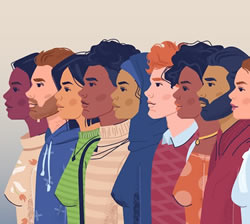Fairygodboss* says the term ‘culture fit’ has been put under the limelight for its potential exclusionary effects.
 Work isn’t just about the work we do; even when we’re heads down on a project, we don’t do it in a silo.
Work isn’t just about the work we do; even when we’re heads down on a project, we don’t do it in a silo.
Work is also about the people we work with — the ones we collaborate with, brainstorm with and celebrate with when we get the job done.
That’s why “culture fit” interviews have become so popular — because work isn’t just about us, it’s about how we work as part of a team.
Culture Amp, an employee engagement software, defines “culture fit” as “the concept of screening potential candidates to determine what type of cultural impact they would have on the organization. This is based on the alignment of values, beliefs, and behaviours between the employee and employer.”
Originally, the term was geared toward employee retention and satisfaction.
If someone was a culture fit for their company, employers believed they would be more likely to work harder and longer for them.
Culture fit was a prescreening for loyalty.
Now, culture fit has been put under the limelight for its potential exclusionary effects.
While shared values can be an asset at work, employers can run into trouble if those values aren’t clearly defined.
Culture fit can easily just become hiring people who share personal connections to you, or passing judgment on people who don’t look, dress or have the same interests as you.
The answer isn’t to get rid of the culture fit, because a company’s culture and an employee’s experience within it matters.
Instead, finding a culture fit should be about aligning values.
“Cultural fit is supposed to indicate whether your working preferences and values match the company you’re applying to join,” writes Sophia Epstein in Worklife.
“If you want to work from home, for example, you’d fit well in a company with a work-from-home policy. If you’re a staunch environmentalist, you won’t be a cultural fit for a pro-coal-mining lobby.
“And if you’re keen to preserve work-life balance, then a just-finding-its-feet start-up likely isn’t a great fit.”
So if “culture fit” isn’t the right way to go, but culture is an important part of an employee’s experience, where does that leave us?
Shifting to “culture Add”
Instead of thinking about a “culture fit,” which might imply that incoming employees need to strive to “fit in” to an already developed culture, we should move toward using the term “culture add.” When we say “culture add,” we acknowledge that the candidate can and should be different from the employees already at the company — and that diversity is a benefit to the company and its culture.
But it’s not just about changing the term.
Here are a few other things companies should do when trying to hire for a “culture add.”
Five ways to properly assess for a “culture add”
- Clearly define company values and culture pillars.
This will ensure everyone, regardless of what department or role they’re in, understands what the company values and what the culture strives to be — rather than relying on personal perspective.
For example, if you’re at a mission-driven company, a “culture add” candidate will believe and want to support this specific mission.
- Ask the same questions.
Everyone should be asking the same set of questions across different culture add interviews.
This ensures you’re not only focusing on the same cultural aspects but that you can also compare candidate answers fairly.
- Have a rubric.
Just as you’d assess a candidate’s skills and experience, use a rubric to concretely assess how the candidates answer the culture add questions.
Outlining what makes a great culture add vs. a good one can help your team make a fairer assessment.
- Check your gut.
Sometimes, we may rule someone out because we had a “weird feeling” or we “just didn’t click.” While your gut can be valid, it shouldn’t make the final call, especially when it comes to evaluating a culture add.
Sometimes remote interviews are just awkward, no matter how well you’d actually collaborate with the person in a work setting.
Or maybe the candidate was extra nervous and didn’t feel as comfortable as they’d like.
Don’t write someone off because you felt off about it at first — they might be a great culture add
- Don’t make it all about the culture add.
When weighing who to pick out of a pool of candidates, HR expert Mel Henningan says to weigh someone’s culture add interview much less than their skills and experience.
“If culture fit accounts for only 10 per cent of a hiring decision, and the other 90 per cent is based on skills and abilities, candidates who represent diversity have a better chance of being selected than if culture fit is 75 per cent of the decision.” While culture matters, it’s far from the only thing that should be considered in a candidate’s application.
*Fairygodboss is a job search site that can be used by anyone, but specialises in helping women find work in almost any industry.
This article first appeared at fairygodboss.com











